The Kinda Genius Micro-MBA: 11 Books That Changed How I Think
The next best thing to doing the thing is reading about doing the thing.
I used to think success was just talent × effort × time. That’s it. Then I started building Book Riot and realized I misunderstood what making something ambitious really takes.
I turned to books for a quasi self-directed MBA, covering finance, management, product development, marketing, and the attendant activities of a corporation. In the course of learning how to make a business, I discovered that my fundamental equation was hilariously wrong. There are so many other variables, and variables within variables, about success that not only is talent + effort x time unhelpful, it is actively misleading.
Instead, I have found it more productive to imagine a toolbox of strategies, tactics, examples, and attitudes to be deployed with some degree of intention, experience, and play. And most of these I learned about by reading. Here are 11 of the books that have helped me the most—and that I turn to regularly when the going gets tough.
Building a Second Brain by Tiago Forte
Forte walks through building a system for capturing, organizing, and using the never-ending flow of important and/or useful things you come across. Capture has always been my Achilles heel. If I can just take a damn second to log or calendar or bookmark that permission slip or blog post or really cool idea, I am 80% of the way there. But unless I am good about using my system (Bear + Omnifocus + Google Calendar), I can be very, very bad. Shouts to Getting Things Done (see below) which introduced me far too late to the need to have a system, but Forte built on that foundation in a way that I actually use day in and day out.
The Checklist Manifesto by Atul Guwande
This is a specific implementation of David Allen’s “do not try to remember things” from Getting Things Done, and it’s the book that has improved my working/doing life the most. Not only should you not try to remember things, you should not trust yourself to remember how to do the things you know how to do. I know you have made chili con carne 50 times. But your human brain gets lazy and overconfident because it also knows you have made it 50 times. And there is going to come a time when you are tired or distracted or just plain old over confident and you don’t put the chili powder in. And then you just have a sloppy ground beef soup.
Guwande, a doctor by trade, shows how using checklists prevents worse outcomes than bland meat paste in fields considerably more complex than anything I deal with: aerospace, surgery, engineering, and construction among others. There is no good reason not to have a checklist for most things you think you are going to do fairly often. Try this one on: the next time you screw something up, ask yourself: is there a checklist that would have prevented this? At Book Riot, whenever there is a moderate+ mistake made, the first thing I ask is “is there a checklist for this? And if not, would a checklist have prevented this?” I am not exaggerating when I say that 90% of the time a checklist would have done the trick.
Creativity, Inc by Ed Catmull with Amy Wallace
This is where most of my creativity and business reading flows these days: specific stories and examples about people making things—and generally the further afield from what I do and know the better. And Creativity, Inc is at the top of the pile of books like this.
The journey of computer animation from stick-figures rendering on mainframes through the release of Toy Story in 1995 is as compelling a story of creativity as I know of. This isn’t just the story of a particular technology or paradigm: Catmull also talks about the very human sensibility that Pixar brings to story-telling, with familiar echoes of Peak (see below) in the form of feedback and iteration. A terrific read about one of the great creative revolutions of our times that is as inspiring as it is compelling.
Drop the Ball by Tiffany Dufu
Are the things you think you should do the things you want to do? Sure you have to pay the electricity bill, but do you need to tidy up the foyer before your friends come over? Or spend all day cooking for them? What if you could let the stuff that you more feel like you should care about than ACTUALLY care go? Even just typing that sentence made my shoulders tighten up. On an emotional level this can be liberating, but it opens up time as well, which in my experience is the lifeblood of creativity.
Note: I haven’t read it, but from what I understand Let Them by Mel Robbins swims in similar waters, at least when it comes to letting go of the stuff that you do or say or feel that are principally derived from what others will do or say or feel about you).
Getting Things Done by David Allen
Do not try to remember things. That’s it really. There are too many inputs and your human brain is better used for processing and thinking than for storage. Paper kicks your ass in that department, so why are you fighting it? This is the book that made me realize that I could actually like for real get better at being organized and productive and in general more sane. Forever and ever grateful.
Grit by Angela Duckworth
Keep going. Or rather, those who can keep going tend to go further. Expect it to be hard. Expect to want to give up. Then, figure out a way not to. Or rather, figure out a way to figure out if giving up is smart because the project is bad or the product stinks or something else is broken. But don’t give up because it is hard or not fun or not magically successful according to your internal, completely unfounded expectation of success. There’s more to it than that, but that’s more than enough for this book to be always within a mental arm’s reach when I feel myself reaching for the eject button on something.
Mediations for Mortals & Four Thousand Weeks by Oliver Burkeman
I am cheating and counting this as one book. You can read either or both and get the idea: your time is limited and you are never going to get ahead of it. Your to-do list is like cold fusion—a self-perpetuating, inexhaustible fount of busy-ness. Realizing and accepting that there is no productivity hack or to-do app that will solve this is both liberating and terrifying. And if you don’t get in your own way and start realizing that you have to solve for the to-NOT-do list so that you can spend your scarce directable time how you want, you will end up getting so much done that you don’t care about.
Nuts & Bolts: Seven Small Invention That Changed the World (In a Big Way) by Roma Agrawal
Someone (and in this case most of the time a bunch of someones) made everything you interact with (this includes most parks and beaches and trails and other “natural” things. Don’t at me). The simplest tools, from the lever to the screw, represent centuries of use and iteration and application. A lens is a vessel of massive amounts of accrued human ingenuity: the wheel a mind-bogglingly elegant solution to a host of human problems. Innovation and creativity is our inheritance, and I find that inspirational.
The Outsiders: Eight Unconventional CEOs and Their Radically Rational Blueprint for Success by William Thorndike, Jr.
I think creativity in business is underrated. I also think financial mega-success in business is overrated. This book profiles executives who thought differently about business by creating unusual models, unconventional products, and even strange new financial terms (including EBITDA for the real-ones out there). Perhaps ingenious capital allocation doesn’t stir your soul, but “how else can we figure this out?” is fascinating in any context, perhaps especially those that seem boring. It was a real look in the mirror moment when I was fascinated by accounting innovations in the world of cable-television.
Peak: Secrets from the New Science of Expertise by Anders Ericcson and Robert Pool
Sticking with it is necessary—but not sufficient. Just because you have written 1000 blog posts or drafted dozens of screenplays doesn’t mean post 999 or screenplay 32 is better than number 1. How do you know you are getting better? You need feedback from someone or something that knows what mastery of that thing looks like. Grit without guidance or other form of feedback is quicksand that feels like progress. (This is the major pitfall of talent + time x effort.)


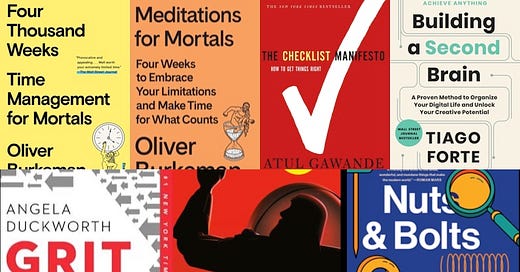


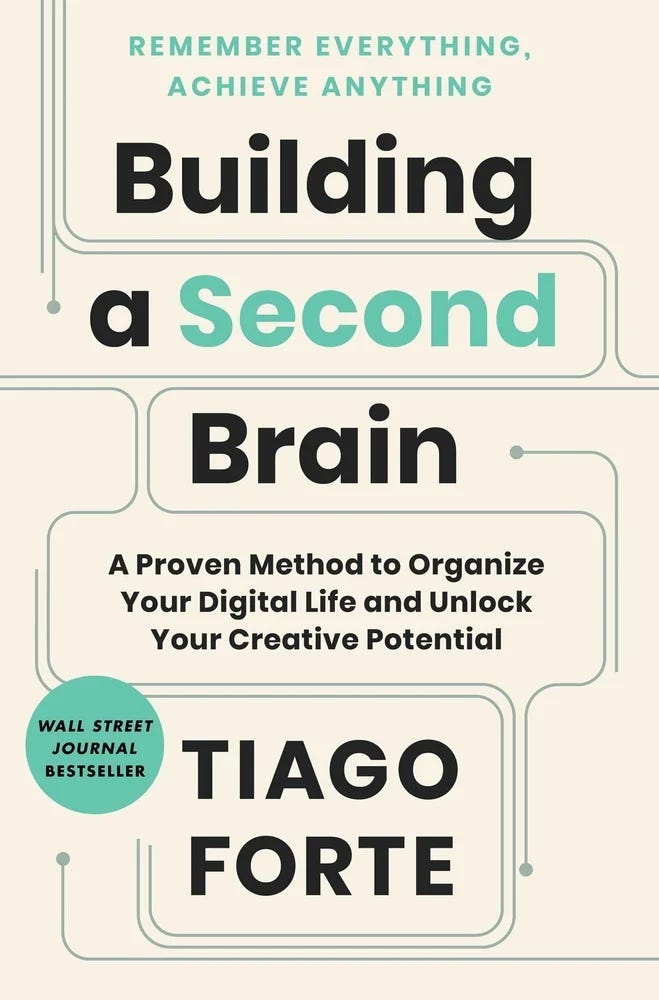
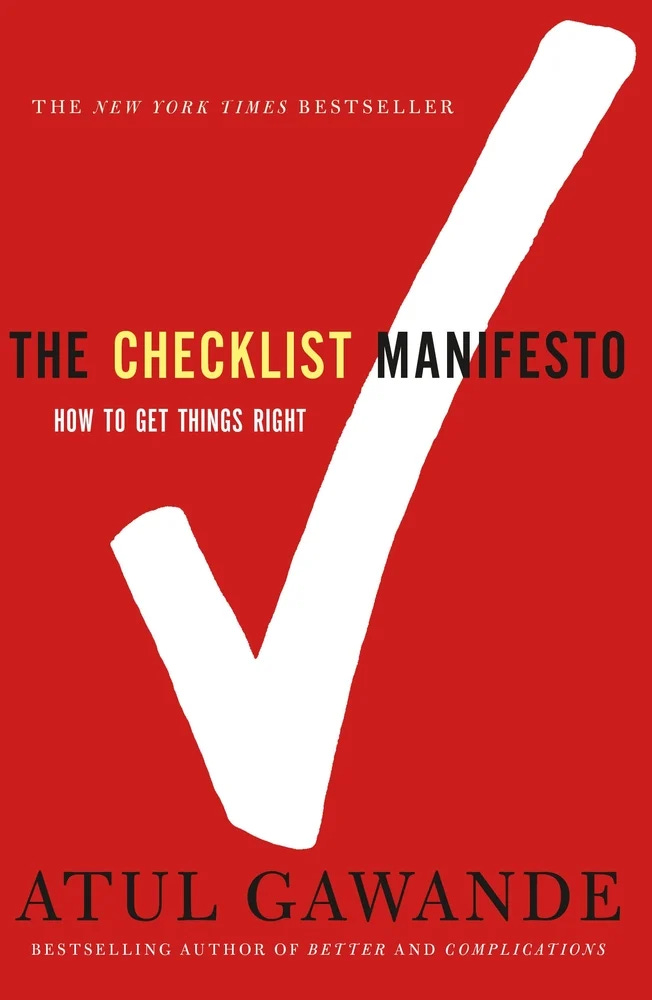
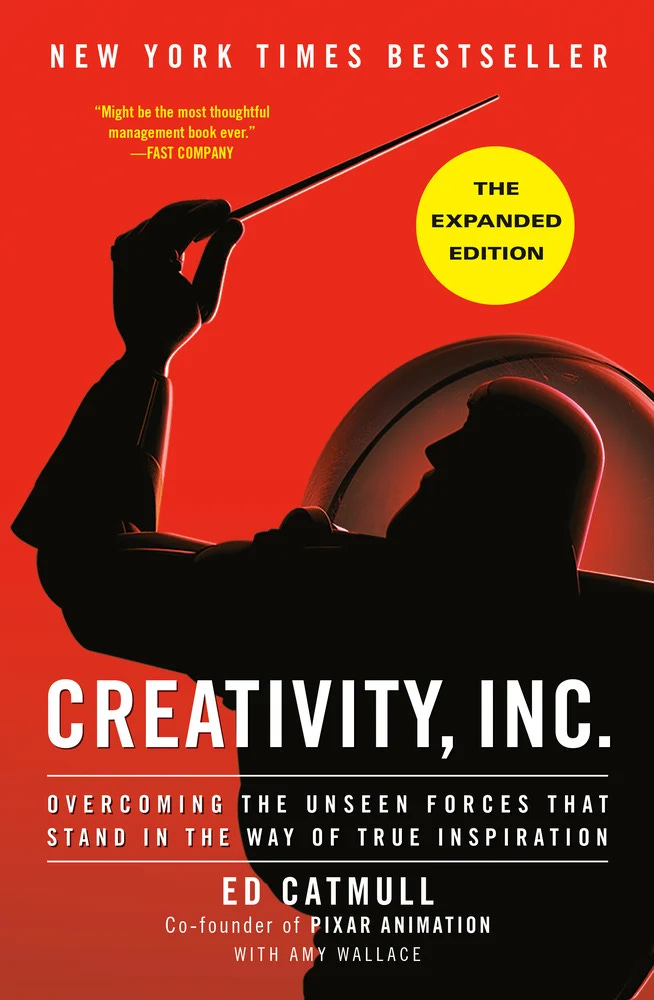
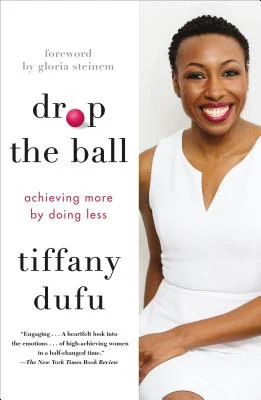
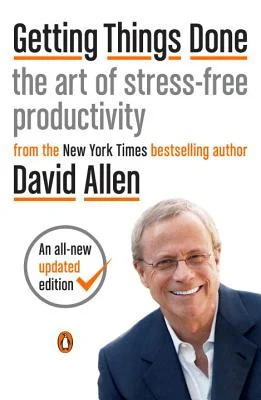
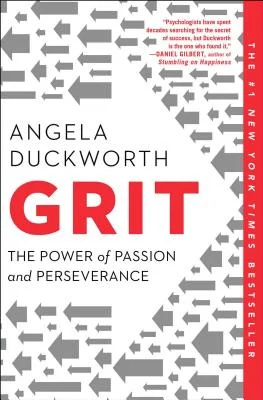
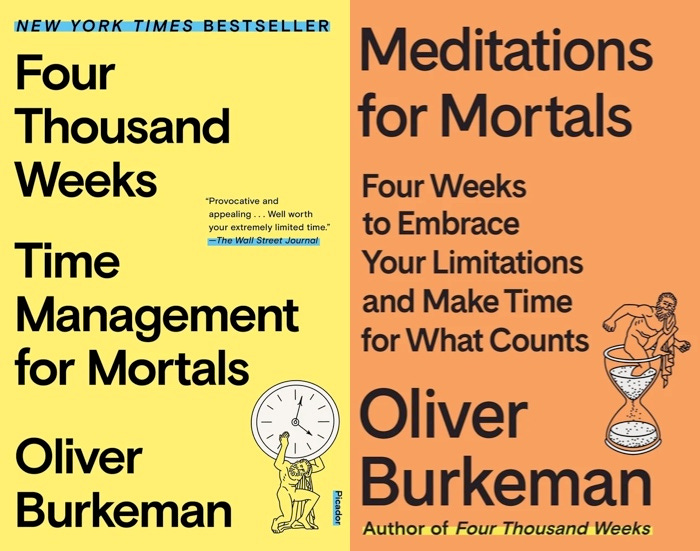
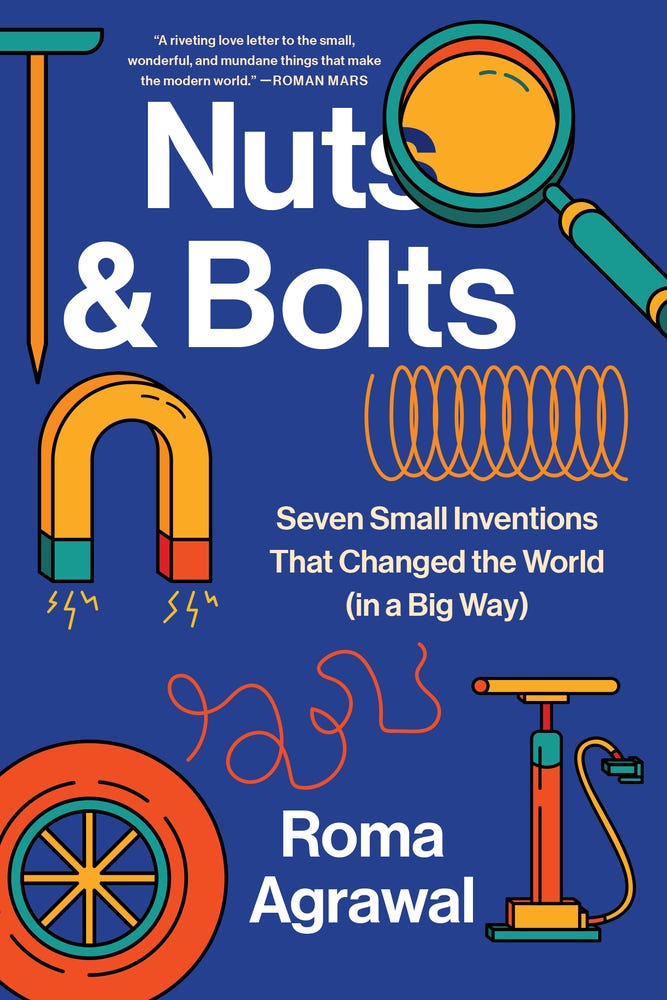
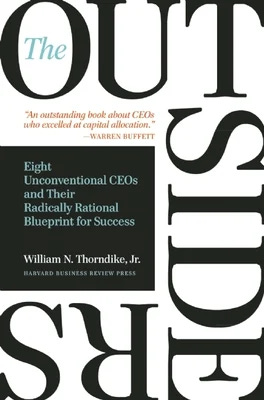
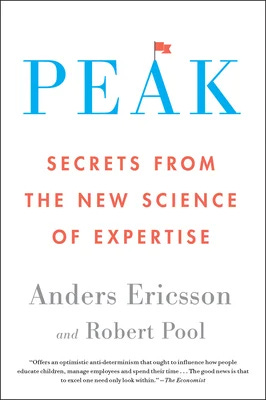
This was so great and your line about the to-do list as cold fusion made me laugh out loud. Thanks so much for sharing this brilliant list.
I love this kind of book list, focused around a particular project or area of interest/growth. I've read about half on your list and have also found them helpful in my business and my life, therefore I am adding the others to my TBR! I am especially intrigued by Peak. Thank you for sharing!